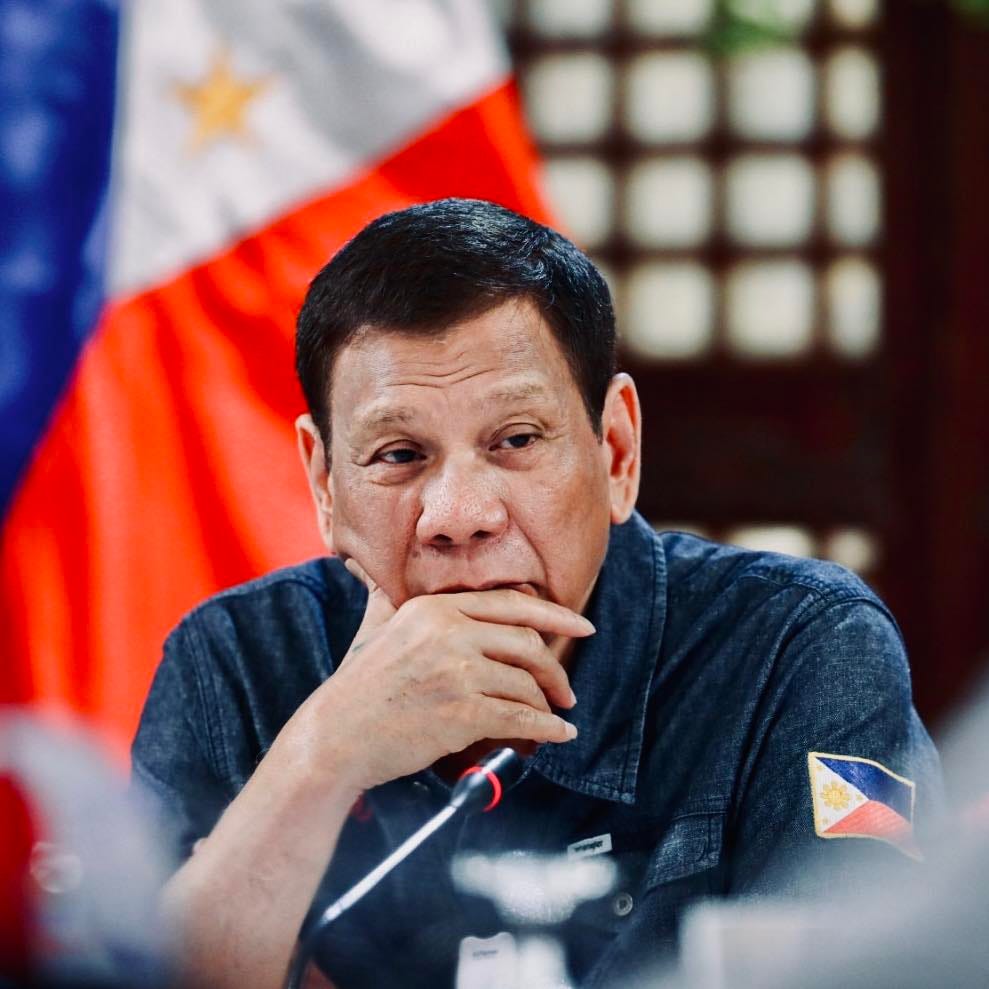Prolonging the inevitable
“I hate drugs,” Rodrigo Duterte declared the moment he assumed the highest public office in the Philippines in 2016. It was a statement that turned out to be a joke. Duterte did not end the drug menace in the country.
Cocaine and synthetic “shabu”, known as the poor man’s cocaine, continued to flow into the country. Thousands of poor people also died in the streets, instilling fear, the main weapon to hold the country under his tight grip. What Duterte probably meant with the statement was that he just hated the competition in the illicit drugs trade.
In his first six months in office, Duterte had eliminated competitors - local officials who were either protecting a rival drug cartel or known drug lords running the local illicit trade. Masking the real war on drugs against rival cartels, Duterte had also employed the Philippine National Police (PNP) and other law enforcement agencies to kill tens of thousands of street-level drug peddlers, couriers, and users.
Truth matters. Quality journalism costs.
Your subscription to Mencari (Australia) directly funds the investigative reporting our democracy needs. For less than a coffee per week, you enable our journalists to uncover stories that powerful interests would rather keep hidden. There is no corporate influence involved. No compromises. Just honest journalism when we need it most.
By the time he stepped down from power in 2022, more than 30,000 had died in the brutal and bloody war on drugs.
Sadly, these figures did come from the national police and the government, and not manufactured by human rights groups and the Roman Catholic Church that bitterly criticized Duterte’s centerpiece policy on law enforcement.
For the six-year period, the PNP had admitted more than 7,000 people were killed in legitimate anti-drug operatoions, mostly in self-defense, a narrative that local courts have started to debunk. Additionally, the Presidential Communications to Operations Office (PCOO), in an accomplishment report, said nearly 20,000 people had been killed in the war on drugs, most of them summary executed by gunmen on motorcycles or left in some isolated areas, bodies wrapped in packaging tape.
It was former senator Antonio Trillanes who revealed Duterte’s involvement in the drug trade. Trillanes said Duterte was at the center of the illicit drug trade, protecting a syndicate led by a Chinese national who was believed to be involved in importing raw materials for making “Shabu”.
Trillanes said the Chinese national, Michael Yang, was even appointed as the president’s economic adviser. It was just letting the law enforcement agencies know that the Chinese trader was untouchable, Trillanes added. Trillanes also blamed Chinese national for the proliferation of off-shore gaming hubs, which double as scam centers.
The Dutertes had also profited from the government measures to combat the coronavirus pandemic in 2020, like the overpricing of China-made vaccines and imposing unnecessary plastic face shields. The level of corruption under the Duterte administration had risen to unprecedented level, with the government’s national debt doubling to 13 trillion pesos from a little over 6 trillion pesos when the late president Benigno Aquino left office in 2016.
Even before Duterte was elected president, Trillanes said Duterte, his three children, and his common-law partner were regularly receiving dividends from the illegal drug trade run by a Chinese criminal syndicate. Trillanes said he discovered the trails of Duterte’s dirty money in a local bank, where billions of pesos had been deposited. Duterte’s rise in wealth and power ended in March this year when the Marcos administration allowed his swift transfer to the International Criminal Court (ICC) in The Hague, hours after his arrest in a Manila airport, coming from a trip to Hong Kong.
One of his fair-haired police officers, Royina Garma, who sought political asylum in the United States for fear of her life after she testified against Duterte in a congressional public inquiry last year, returned to the Philippines only to provide evidence against the former president before the ICC. Justice Secretary Crispin Remulla said Garma flew to Malaysia, a day after her arrival in the Philippines, to talk to ICC investigators hoping she would become a state witness against Duterte.
Garma’s testimonies before Congress last year about the reward system to the police for killing suspected drug peddlers, couriers, and users could bolsted the crimes against humanity charges against Duterte. She also said the former president asked her to look for a police offier who wil carry out his planned genocidal policy on war on drugs.
Garma’s testimony would strengthen earlier testimonies given by two former members of the so-called Davao Death Squad (DDS) - Police Sgt Arturo Lascanas and hitman Edgar Matobato - about the pattern of extrajudicial killings in the country. It was in Davao City that the mass murders of petty criminals, including drug peddlers and users, began in the late 1980s when Duterte was the city mayor. Garma’s testimonies will provide the link to the killings between Davao and the entire country when Duterte was elected president in 2016.
The time of reckoning, however, was set back when the ICC trial chamber announced a brief postponement of Duterte’s trial on September 23. It was set six months after his arrest and detention in The Hague, but it has a wait a bit because Duterte’s lawyers said the former strongman is too weak and not fit to stand trial. No one really knows Duterte’s health and medical conditions, but he is in better hands under the European health system. Duterte might be suffering from depression and his mental conditions may have deteriorated.
Six months of confinement in an ICC detention facility with no outside world contact might be torture to a narcissist former presdent. Duterte loves the crowd, an adoring crowd who laugh at his tasteless jokes and curses as well as misogynist banters. He probably missed his sycophants, blind followers, and the many women in his life.
That could be a factor why his mental and physical health suffered. But this is only temporary; he still has to stand trial before the ICC to pay for his excesses and abuses.
Duterte’s defense team was just delaying the inevitable, a poor tactic that could prolong Duterte’s detention and suffering. Thousands of poor families, victims of his extrajudicial killings, have been anticipating the day he faces the ICC trial chamber. They believed the evidence against Duterte were overwhelming and they longed the day that justice is served.The opinions expressed are those of the author and do not necessarily represent the views of this publication.
Got a News Tip?
Contact our editor via Proton Mail encrypted, X Direct Message, LinkedIn, or email. You can securely message him on Signal by using his username, Miko Santos.
Sustaining Mencari Requires Your Support
Independent journalism costs money. Help us continue delivering in-depth investigations and unfiltered commentary on the world's real stories. Your financial contribution enables thorough investigative work and thoughtful analysis, all supported by a dedicated community committed to accuracy and transparency.
Subscribe today to unlock our full archive of investigative reporting and fearless analysis. Subscribing to independent media outlets represents more than just information consumption—it embodies a commitment to factual reporting.
Not ready to be paid subscribe, but appreciate the newsletter ? Grab us a beer or snag the exclusive ad spot at the top of next week's newsletter.







